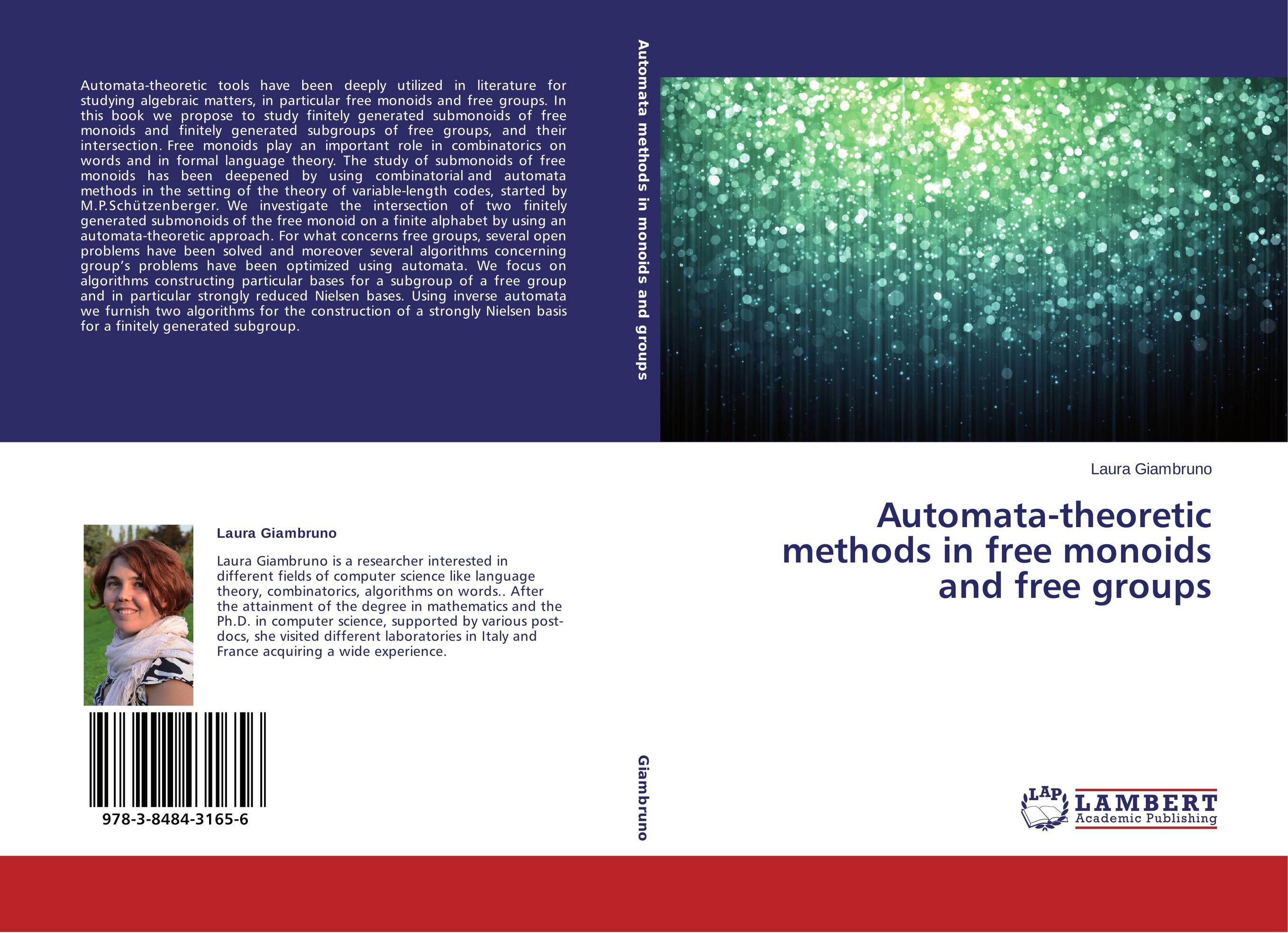| Поиск по каталогу |
|
(строгое соответствие)
|
- Профессиональная
- Научно-популярная
- Художественная
- Публицистика
- Детская
- Искусство
- Хобби, семья, дом
- Спорт
- Путеводители
- Блокноты, тетради, открытки
Automata-theoretic methods in free monoids and free groups.

В наличии
| Местонахождение: Алматы | Состояние экземпляра: новый |

Бумажная
версия
версия
Автор: Laura Giambruno
ISBN: 9783848431656
Год издания: 2014
Формат книги: 60×90/16 (145×215 мм)
Количество страниц: 128
Издательство: LAP LAMBERT Academic Publishing
Цена: 35323 тг
Положить в корзину
Позиции в рубрикаторе
Отрасли знаний:Код товара: 112947
| Способы доставки в город Алматы * комплектация (срок до отгрузки) не более 2 рабочих дней |
| Самовывоз из города Алматы (пункты самовывоза партнёра CDEK) |
| Курьерская доставка CDEK из города Москва |
| Доставка Почтой России из города Москва |
Аннотация: Automata-theoretic tools have been deeply utilized in literature for studying algebraic matters, in particular free monoids and free groups. In this book we propose to study finitely generated submonoids of free monoids and finitely generated subgroups of free groups, and their intersection. Free monoids play an important role in combinatorics on words and in formal language theory. The study of submonoids of free monoids has been deepened by using combinatorial and automata methods in the setting of the theory of variable-length codes, started by M.P.Sch?tzenberger. We investigate the intersection of two finitely generated submonoids of the free monoid on a finite alphabet by using an automata-theoretic approach. For what concerns free groups, several open problems have been solved and moreover several algorithms concerning group’s problems have been optimized using automata. We focus on algorithms constructing particular bases for a subgroup of a free group and in particular strongly reduced Nielsen bases. Using inverse automata we furnish two algorithms for the construction of a strongly Nielsen basis for a finitely generated subgroup.
Ключевые слова: Rank, Free Group, automaton, regular language, free monoid, finitely generated submonoids, finitely generated subgroups



